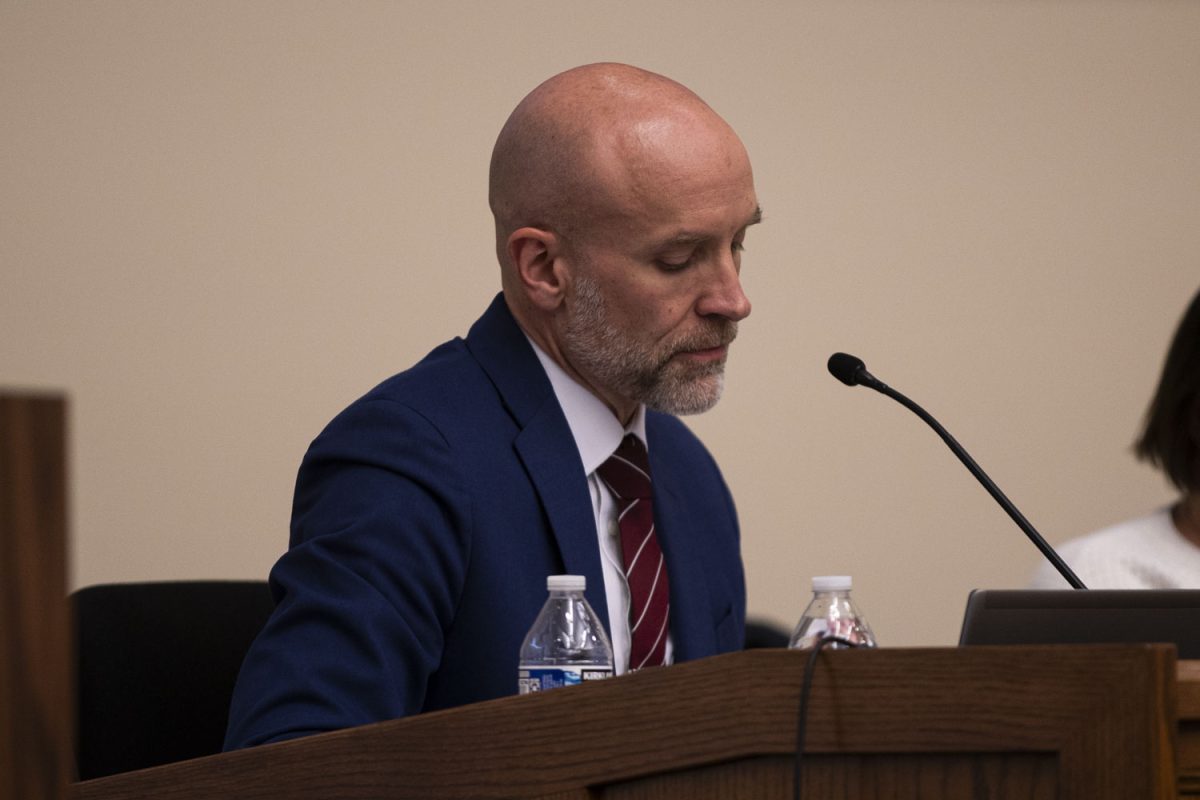Author and UI alumnus Roger Thurow tackles a problem facing the United States and the world alike: hunger.
By Charles Peckman
The world hunger epidemic is a larger problem than most would think, at least according to one expert.
Author and University of Iowa alumnus Roger Thurow stood in front of a crowd of people and read an excerpt from his most recent book, The First 1,000 Days: A Crucial Time for Mothers and Children — and the World at Prairie Lights, 15 S. Dubuque St., on Tuesday.
“This is my third book about hunger. In a way, I’ve completed my own Hunger Games trilogy,” he quipped.
After Thurow left the UI in 1979, he made a career at the Wall Street Journal as a foreign correspondent. He reported on the end of the Cold War, the fall of the Berlin Wall, and the release of Nelson Mandela.
But after a 30-year sstint at the Journal, Thurow decided to focus on an epidemic that to him is one of the largest of the 21st century — hunger.
Thurow said hunger became an “overriding passion” for him once he and fellow journalist and UI alumnus Scott Kilman covered a famine in Africa in 2003. The story ended up as finalist for the Pulitzer Prize in International Reporting.
Thurow found it to be a “stupid, shameful oxymoron” that the most malnourished people in the world are farmers. These farmers, most of whom are in developing countries, struggle to survive during the seasons when crops are not abundant.
“As a foreign correspondent, you’re forced to move from one country to another. But the hunger crisis made me stop cold in my tracks” he said.
This global hunger epidemic is the focus of his newest book, The First 1,000 Days.
The “first 1,000 days,” refers to a baby’s development from conception to their second birthday. It is an “incredibly important time for infants,” Thurow said.
Thurow said the highest likelihood for cognitive and physical stunting is during this 1,000-day period, because this is when most cognitive and physical growth occurs.
“Nutrients are an accelerant of growth, but in these developing countries are difficult to obtain,” he said.
The book focuses on four narratives, spanning the globe and the scope of the worldwide epidemic. The first story, which focuses on a Ugandan woman whose son died in infancy, deals with the difficult task of survival which hungry mothers face.
The other three narratives focus on women in Guatemala, India, and the United States.
Thurow said the hardest part about covering these stories is that he cannot intervene in any way.
“This type of reporting isn’t hard in a logistic sense, but just observing is difficult. Helping out would ruin the outcome, and I can’t do that,” he said.
Thurow said his subjects do not look down upon him for his lack of intervening. To them, the fact that he is getting their story out there is “incredibly important,” Thurow said.
Lindsay Park, an attendee of the event at Prairie Lights, said “it’s very exciting to have Roger here.”
Sara Ring, another attendee of the event, said “I’ve met Roger before. I read the book, and I didn’t even realize that hunger was such a big problem worldwide.”







